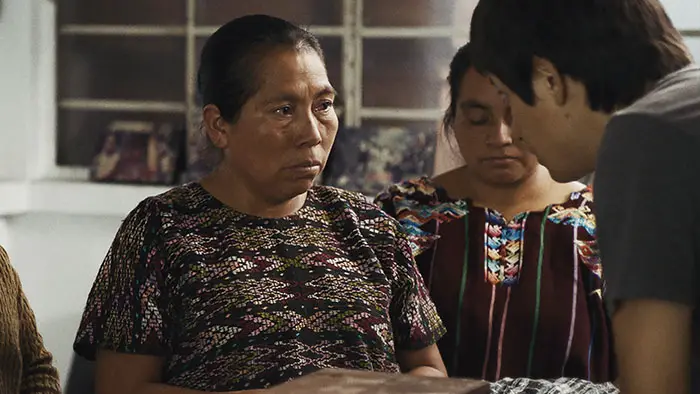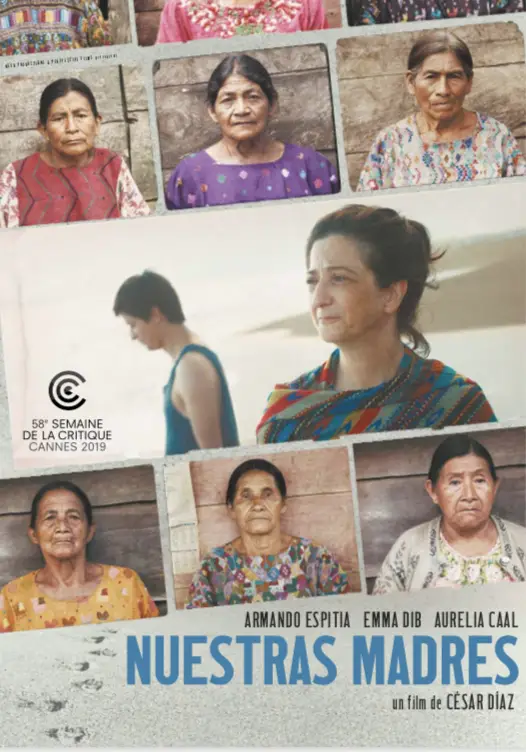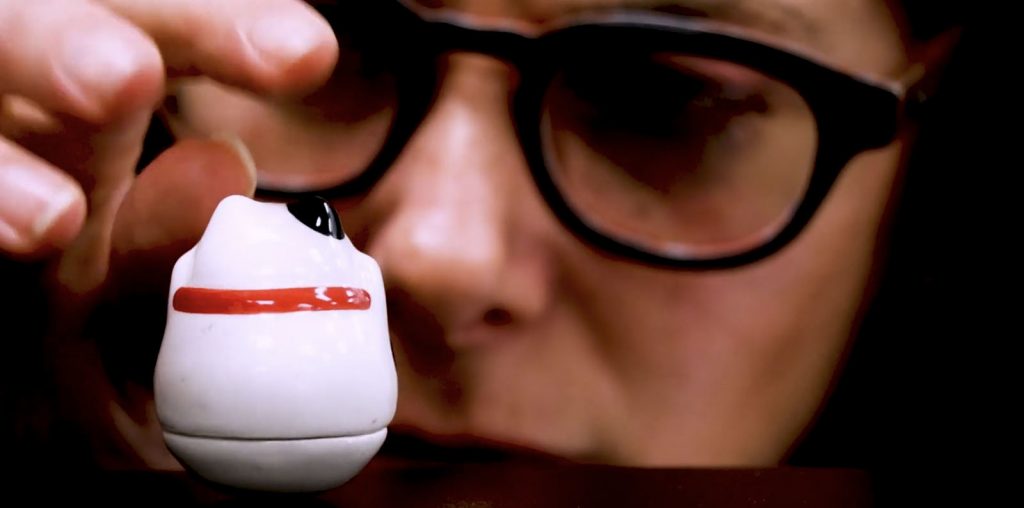
Several standout sequences made me wish the entire narrative coalesced as beautifully. One such moment involves Ernesto reluctantly bribing apathetic guards so that he and Nicolasa can visit her husband’s burial site on private land. Ernesto interviewing villagers about their plights – a quiet montage of photographic portraits – is poetic and sublime. The young man listening to his mother singing on a beach is another resonant touch. The filmmaker captures Guatemala’s beautiful vistas and starkly juxtaposes them against the decaying lives of its inhabitants.

“…filmmaker captures Guatemala’s beautiful vistas and starkly juxtaposes them against the decaying lives of its inhabitants.”
Sadly, the overall approach is fragmentary, which makes for somewhat uneasy viewing. Our Mothers can’t seem to decide whether it’s an acute study of the personal repercussions of war, an introspective look at a man determined to reconnect with his past, or a meditation on heritage and political unrest. That’s not to say it can’t be all three, but it fails to accumulate enough momentum to bring either of those points home, ending up neither here nor there. Is it more important for Ernesto to help out Nicolasa and her tormented villagers, or to help himself? Perhaps kill two birds with one stone? I wanted more of Nicolasa. Her grief-stricken face is by far the film’s shining beacon. I wanted Diaz to dig deeper, excavate the entire skeleton, as opposed to some of its torso.
“Suffering is not synonymous with truth,” a character states to Ernesto. That is quite the profound sentiment that, like the bulk of Our Mothers, hangs there for a moment, before dissipating into another thread. Diaz’s film is worth watching for the issues it raises, yet with a tighter focus and a more defined character arc, it could’ve been something exceptional. It’s really quite something for a film about the most momentous of subjects – our very humanity – to manage to be this inconsequential.

"…overall approach is fragmentary, which makes for somewhat uneasy viewing."


